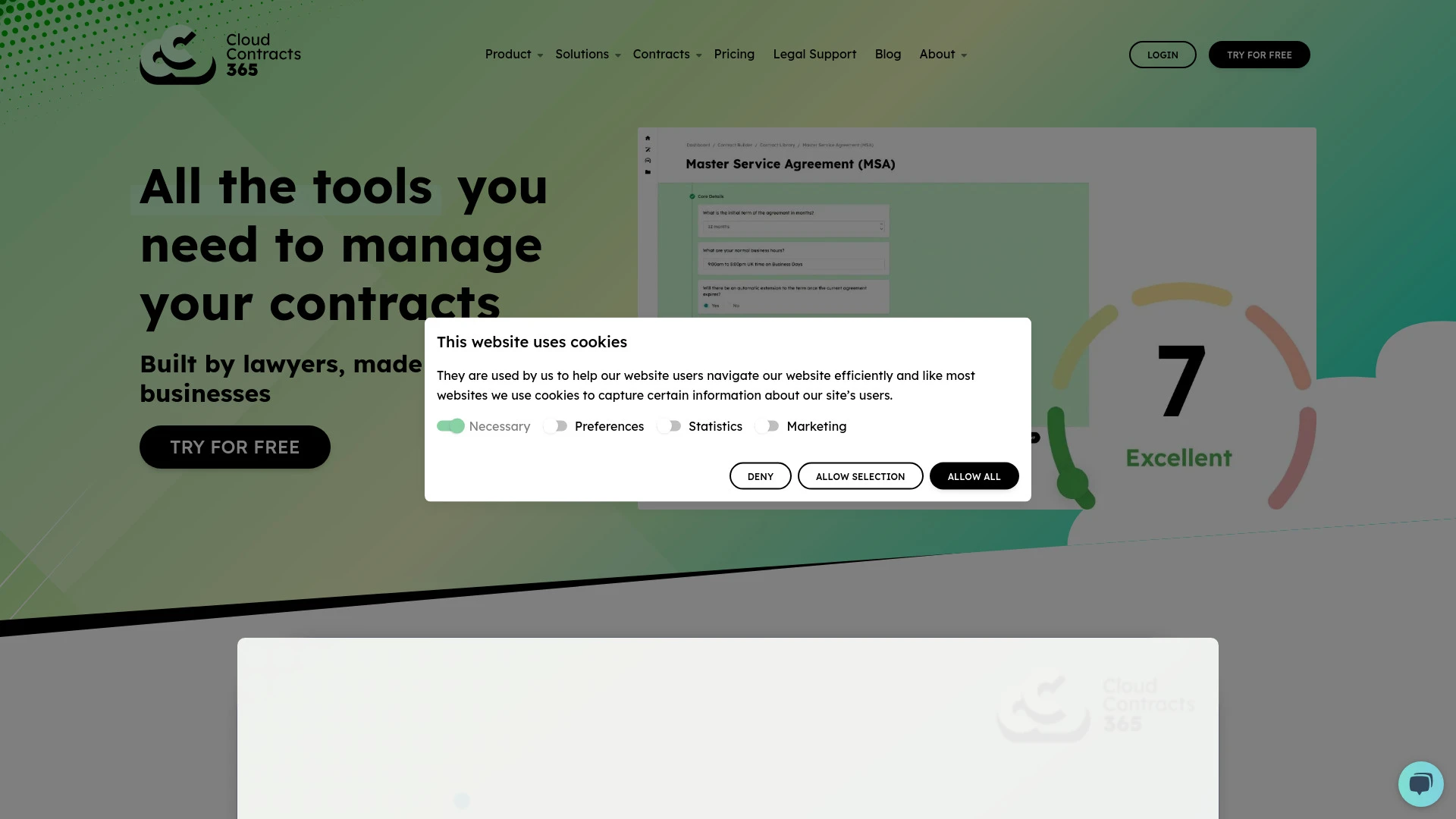Dropbox Sign contre Cloud Contracts 365
Dropbox Sign lancé en 2012 se concentre sur les signatures électroniques permettant une signature de documents fluide pour les entreprises et les individus. Ciblant des professionnels en quête d'efficacité il s'intègre à diverses applications. Cloud Contracts 365 lancé en 2020 offre des capacités de gestion de contrats et de signature électronique pour les entreprises en mettant l'accent sur la conformité et la collaboration. Les deux servent des marchés distincts mais chevauchants.


Dropbox Sign
Idéal Pour
Contrat de vente signé
Documentation d'embauche pour les RH
Accords de financement de startup
Intégration des clients de services financiers
Forces Clés
Accélère le processus de signature de contrat
Réduit les besoins en paperasse et en stockage
Améliore la conformité aux normes légales
Fonctionnalités principales
Signer des documents numériquement
Créer et gérer des signatures électroniques
Générer des modèles réutilisables
Remplir et signer des PDF
Gestion complète des documents
Cloud Contracts 365
Idéal Pour
Accélérer les processus de vente
Améliorer la gestion des contrats organisationnels
Créer des documents juridiques rapidement
Optimiser les flux de travail des contrats pour les équipes techniques
Forces Clés
Améliore la vitesse de traitement des contrats
Réduit les risques juridiques
Améliore la productivité de l'équipe
Fonctionnalités principales
Création de contrat simplifiée
Révision de contrat alimentée par l'IA
Gestion du cycle de vie
Outil de signature électronique intégré
Génération de résumé des risques
Popularité
À un coup d'œil
Dropbox Sign excelle dans des fonctionnalités de signature électronique conviviales et des intégrations fluides, ce qui en fait une solution idéale pour les entreprises priorisant une signature de documents efficace. En revanche, Cloud Contracts 365 offre de solides capacités de gestion des contrats, adaptées aux organisations nécessitant un support complet du cycle de vie des contrats. Les avantages de Dropbox Sign incluent la facilité d'utilisation ; les inconvénients sont des fonctionnalités de contrat limitées. Les avantages de Cloud Contracts 365 incluent des outils de contrat étendus ; les inconvénients impliquent une courbe d'apprentissage plus raide. Choisissez Dropbox Sign pour des signatures rapides et Cloud Contracts 365 pour une gestion approfondie des contrats.
Tarification et Plans dAbonnement
Dropbox Sign propose un plan gratuit avec des fonctionnalités limitées et des niveaux payants à partir de 15$/mois pour les particuliers, montant jusqu'à 25$/mois pour les équipes, avec des remises sur volume disponibles. Cloud Contracts 365 les prix commencent à 10$/mois pour des fonctionnalités de base, jusqu'à 35$/mois pour des options avancées, offrant également des prix sur mesure pour les grandes entreprises. Les deux s'adaptent à des tailles d'entreprise variées, mais Dropbox Sign peut être plus rentable pour une utilisation intensive en raison de ses avantages de niveau supérieur.
Métriques de performance
Dropbox Sign excelle en rapidité avec un retour rapide des documents ce qui le rend idéal pour des accords sensibles au temps. Cloud Contracts 365 offre une précision supérieure grâce à un suivi avancé et un contrôle de version ce qui le rend préférable pour des documents juridiques complexes. Les repères de fiabilité montrent que les deux plateformes sont robustes mais Dropbox Sign peut surpasser dans des scénarios à fort volume garantissant une exécution rapide.
Expérience Utilisateur
Dropbox Sign offre une interface claire et intuitive avec une navigation simple, facilitant la création et la gestion de documents pour les utilisateurs. La personnalisation est robuste, permettant des modèles personnalisés. La courbe d'apprentissage est minimale grâce à des outils conviviaux et des ressources de support abondantes, y compris des tutoriels et des FAQ. Cloud Contracts 365 présente un design plus complexe, ce qui peut nécessiter du temps pour être maîtrisé. La navigation peut être moins intuitive, mais elle propose des flux de travail personnalisables. Les ressources de support sont adéquates mais pas aussi étendues que celles de Dropbox Sign.
Intégrations et compatibilité
Dropbox Sign s'intègre parfaitement avec des applications comme Google Drive Salesforce et Slack améliorant les flux de travail. Cloud Contracts 365 prend en charge les intégrations avec Office 365 DocuSign et Zapier favorisant la compatibilité avec diverses plateformes tierces pour une gestion documentaire efficace.
Limitations et inconvénients
Les limitations de Dropbox Sign incluent des formats de document restreints et moins d'options de personnalisation tandis que Cloud Contracts 365 peut manquer de fonctionnalités d'intégration complètes et d'analytique avancée. Les solutions de contournement incluent l'utilisation d'outils tiers pour le support de format et les améliorations d'intégration.